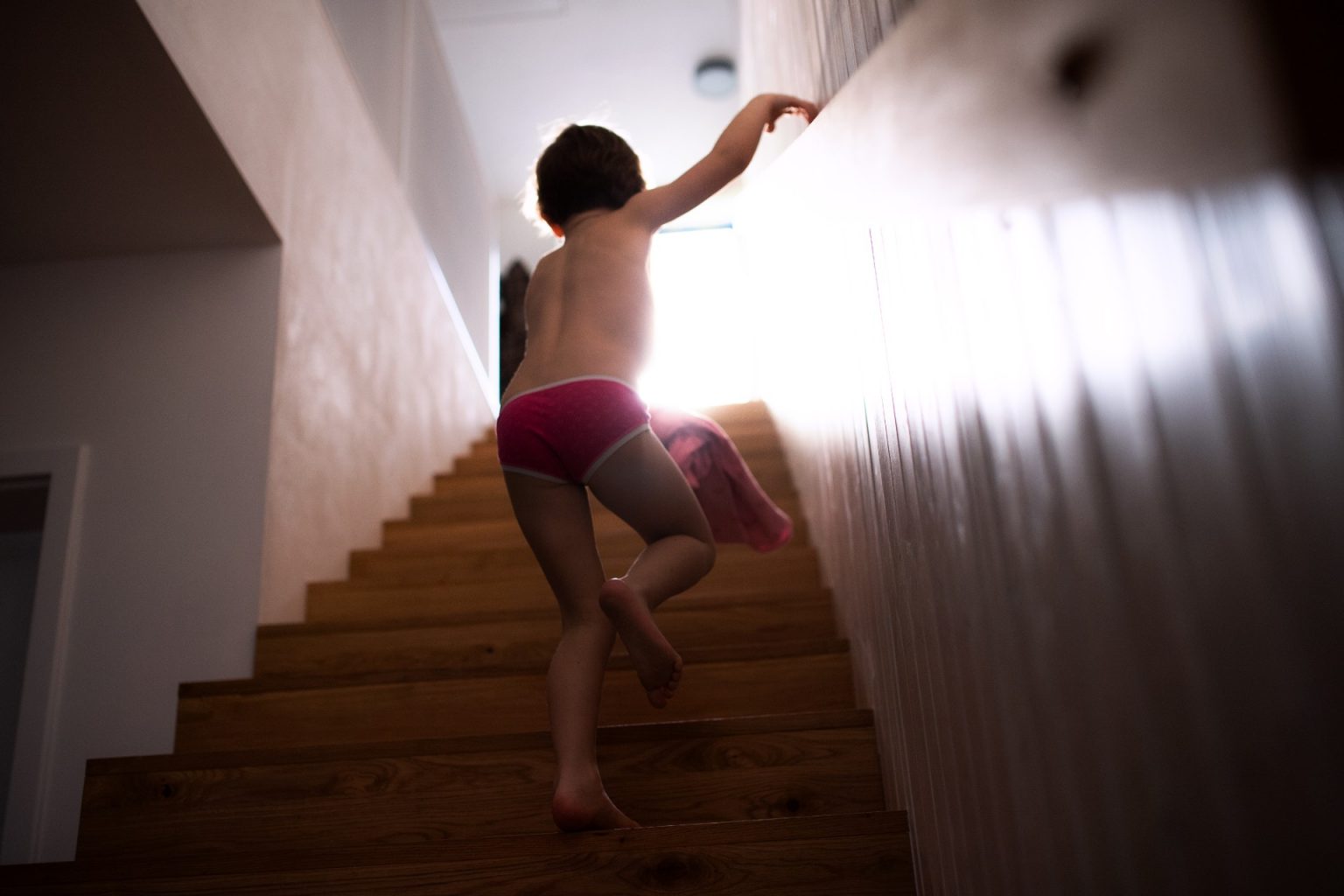Unexpected sleep interruptions come with the territory of being a parent, but for Shawna Dolman of Hamilton, Ont., it’s an almost nightly occurrence. Her son Liam has experienced night terrors and sleepwalking since he was two years old, and Shawna says she often finds him walking around his room or in the upstairs hallways. “Other nights, he sits up in his bed and rocks or bounces while crying and talking incoherently.”
Liam has a sleep-related incident almost every night, and sometimes repeatedly during the same night, yet Shawna feels sure that he is not aware of what he is doing. “I can tell he’s asleep because it’s as if he is looking right through me,” she says. “The next day, he has no memory of the episodes.”
Sleepwalking most commonly begins between four to six years of age and in children who are vulnerable (due to a family history), things such as being overtired, sick, and under stress can trigger an episode. Shawna noticed that Liam’s episodes were more severe following an exciting or unusually busy day. “He cries harder and seems more panicked,” she describes. “On those nights, it is especially difficult to calm him and get him back into bed.”
Dr. Nicky Cohen, a Toronto-based clinical psychologist who provides parent education and counselling around young children’s sleep problems, explains that in children like Liam, sleep deprivation or being overtired is a common cause of sleepwalking. “Sleepwalking typically occurs during deep sleep, and when we are sleep deprived the body gets more deep sleep to catch up,” she says. “As a result, getting more deep sleep increases the risk of sleepwalking in a child who is prone to these behaviours.”
Do You Wake a Sleepwalker?
Dr. Cohen says no. “While a child’s eyes may be open and they may appear to be awake, they are actually deeply asleep and are therefore difficult to wake.”Plus, interfering with an episode can actually prolong it and make the child more agitated. Instead, she recommends gently guiding the child back to bed. “If the child is bothered by this,” she says, “let the episode run its course. Stay by his side—to ensure he is safe—but do not intervene further.”
What You Can Do
Dr. Cohen has the following advice for parents of sleepwalkers:
- Keep your youngster’s sleep routine as consistent as possible;
- Keep the same bedtime and wake time each day;
- Address factors that interrupt or disturb sleep;
- Choose an earlier bedtime if fatigue is a recurring issue.
Next steps
It can also be helpful to consult with your family doctor, in case other problems (such as snoring or sleep apnea) are disturbing your child’s sleep. In more severe situations, medication or behavioural techniques may be considered.
Shawna consulted their family doctor and was told that Liam would most likely outgrow his sleepwalking and night terrors by the time he reaches adolescence. She is encouraged by the fact that over the past year, the frequency and severity of Liam’s episodes have started to decrease—allowing everyone to rest a little easier.
Safety Considerations
Clinical psychologist Dr. Nicky Cohen suggests the following actions to help decrease the possible safety risks associated with sleepwalking:
- Have an audio or video monitor in your child’s room.
- Install a safety gate at the top of the stairs.
- Tie a bell to your child’s bedroom door to alert you if she opens it or set an alarm if your house is equipped.
- Ensure all outside doors and windows are securely locked with childproof latches.
- If your child will be sleeping away from home, notify the hosts or caregivers about his or her sleepwalking tendencies.
Originally published in ParentsCanada magazine, Nov/Dec 2016.









